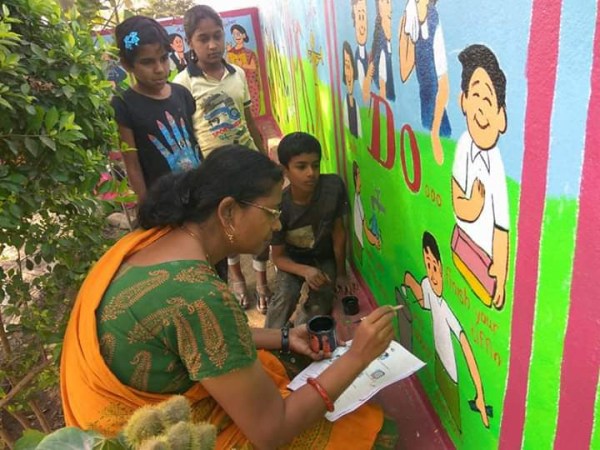Teachers’ Day 2022: This one-of-a-kind primary school near Pune runs 365 days, has not had a holiday in two decades
A primary school in Kardelwadi, a tiny village about 60 kilometres east of Pune, runs every single day of the year and has not had a holiday in two decades. Experts from the National Council of Education Research and Training (NCERT) have come to the village twice this year, living there at a stretch, to understand exactly how it functions for 365 days a year.
The school is run by a couple, Dattatreya and Bebinanda Sakat, both Zilla Parishad teachers. They were both appointed to the school in 2001. The school has never shut its door to the students for a single day in the last 20 years. And the Sakat’s have never taken a vacation since, avoiding weddings and funerals altogether to ensure the school has never had a break.
Their efforts have been recognised with several accolades: Zilla Parishad, district, state and central government awards, with Bebinanda also getting a National Teacher Award from the President.

 Image credits: Alifiya Khan
Image credits: Alifiya Khan
“I was transferred here after 11 years of service at another school. What I came to was an old one-storey building with four rooms. Honestly, it was quite lifeless. We started with small things like gardening, painting figures on walls, making toys with clays to liven up the school’s look and atmosphere. We saw that children were interested in activities, so we decided not to restrict them to textual learning. We allowed them to move freely between classes. Some students came in even on weekends to do some activities, so we started coming in too and that’s how it started,” recalled Dattatreya.
Realising that coming to school on weekends keeps students engaged and productive, the Sakat couple started holding special activities for students for free. Among other things, the students paint, sketch, watch films or plays, make objects on the potter’s wheel, garden, surf the Internet, and learn music.
Weekdays are also not regular by any means.
“It is not just formal learning. Students help us clean classrooms, water plants. They own the school as much as us. We teach them the syllabus as per the Balbharati textbook. Even though this is a Marathi medium school, it is not just restricted to that. We teach them English and even pick concepts from CBSE, ICSE textbooks,” said Bebinanda.
He added, “Learning here is seamless and without restrictions. Every year, at least half of our Class IV batch would crack the state scholarship exam, which is considered very tough. A lot of people are surprised how our students know so much, far beyond their age. That is what the NCERT team wanted to study as well.”
A few villagers saw the changes in the school and pitched in by donating old computers, LCD screens and even an air conditioner. The couple turned one of the rooms into a laboratory, where students either play games or now access the Internet for interactive lectures on a variety of subjects chosen and curated by the teachers.
After the NCERT team’s visit, a letter was sent to Dinkar Temkar, a former director of primary education in Maharashtra. It said the team looked into the roles and functions of teachers and others in planning and implementing the activities, the school’s teaching and learning process, and the support it might need.
Dattatreya will retire next year. Bebinanda will in four years. “But we will keep coming to the school. We don’t know what else to do, this is our life now,” he said.


